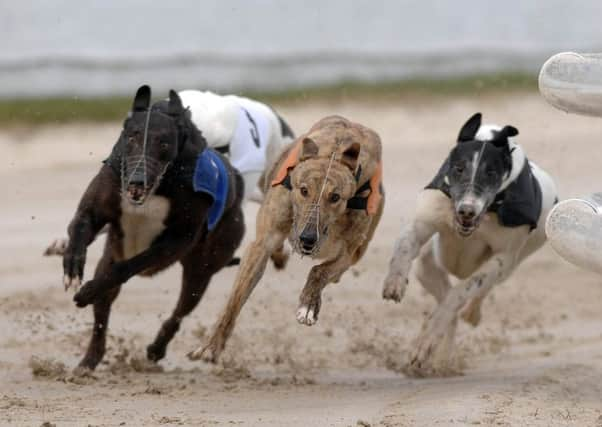Dog track opponents seek life ban for drug test failure


Activists from Say No To Wallyford Track (SNTWT) – who oppose the building of a greyhound stadium at Wallyford in East Lothian – also attacked the “laughable” and “pathetic” explanations given at disciplinary hearings of the Greyhound Board of Great Britain (GBGB), the governing body for licensed greyhound racing.
Campaigners say banning someone for life is currently problematic as it requires a high level of evidence to prove they directly administered drugs, rather than that the dog had somehow been “contaminated” without the trainer’s knowledge.
Advertisement
Hide AdAdvertisement
Hide AdIn 2018 there was 10 positive dope tests, including four where traces of Class A cocaine was identified at Shawfield stadium in Rutherglen, near Glasgow, Scotland’s only registered greyhound racing stadium.
Recent GBGB disciplinary reports reveal the explanation given by trainer Angus McCrae, from East Kilbride, for his dogs Blue Lad and Trapezius, testing positive for traces of cocaine at Shawfield last June.
McCrae said he had allowed a friend to sleep in his van after falling out with his wife but that the friend, who used the van to deliver cold meats dropped some cocaine on the floor which landed on some bones which the greyhound ate.
McCrae’s was fined £1,500 and had his licence withdrawn for 12 months, suspended for 12 months.
Another case at Sheffield stadium involved an owner saying his dog, who lived in a shed in his garden, broke free and ran into the house and drank a cup of tea resulting in caffeine being detected in its system.
A spokeswoman for SNTWT said the GBGB needed to enforce its Greyhound Commitment mission which includes having a zero-tolerance on the mistreatment of greyhounds.
“Doping any animal is extremely harmful to their health. Doing this purely for the gambling industry is shocking and is against the law and the Animal Health and Welfare (Scotland) Act 2006,” the SNTWT spokeswoman said.
“We see the greyhound racing industry, which is completely money-led and where welfare comes a poor second.
Advertisement
Hide AdAdvertisement
Hide Ad“We want to see trainers whose greyhounds are found to have drugs in their system to be banned for life because this is a cruelty and abuse.
“If the GBGB want to be seen to be cleaning up their industry they need to be seen to be doing something about it. Giving someone a 12 month suspended ban when cocaine is identified is not giving a commitment to targeting the crisis.”
Mark Ruskell, Scottish Green Party MSP for Mid Scotland and Fife Region, and the party’s animal welfare spokesman, said: “Drugging of dogs is happening all too frequently, along with other horrific treatment and neglect, and given the serious nature of this abuse, the sanctions handed out to those found to be responsible can barely be described as a punishment or deterrent.
“Legislation intended to protect Scotland’s animals is currently not fit for purpose in this and many other areas, and I support calls for a lifetime ban on owning dogs for anyone found guilty of abuse.
“Calls to ban greyhound racing are growing stronger every day in the face of an industry which appears incapable of meaningful reform.”
A GBGB spokeswoman said: “We have a robust and comprehensive testing regime across our 21 licensed tracks. Our sampling is analysed by LGC, a world-renowned laboratory for sports forensic analysis, and is supported by two independent scientific advisers who are both leading academics in this field. The process is also overseen by an independent disciplinary panel.
“Each year thousands of random samples are taken from registered greyhounds both before and after racing and only a minimal fraction of these (less than 0.5 per cent) are found to be positive. These are usually cases of contamination rather than direct administration but each case is investigated thoroughly.
“Advancements in forensic technology mean that our testing and analysis are so accurate that even miniscule trace amounts of cocaine or its metabolites can be identified.
Advertisement
Hide AdAdvertisement
Hide Ad“Upholding the integrity of our sport and the welfare of our greyhounds are our highest priorities.”
The Wallyford track has suffered lengthy delays.
Businessman Howard Wallace applied to East Lothian Council in 2001 to build the stadium financed by a housing development. However, the council approved the stadium but not the housing.
An appeal to the Scottish Government saw the housing approved as long as the stadium was also constructed.